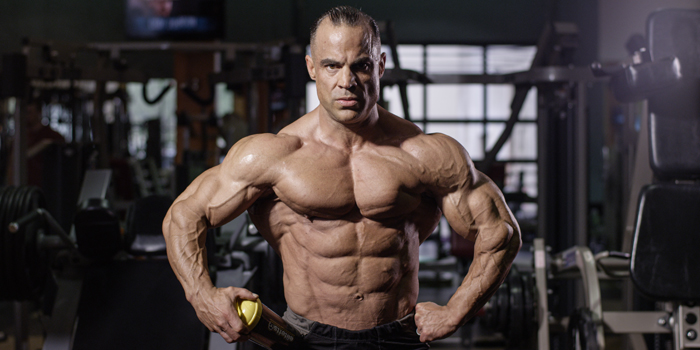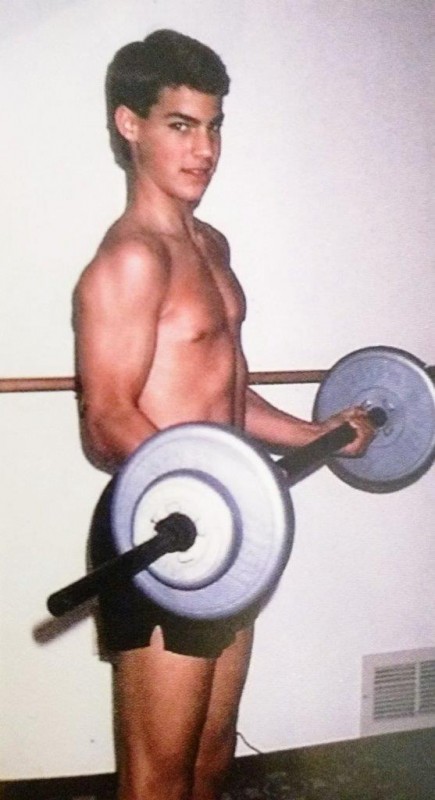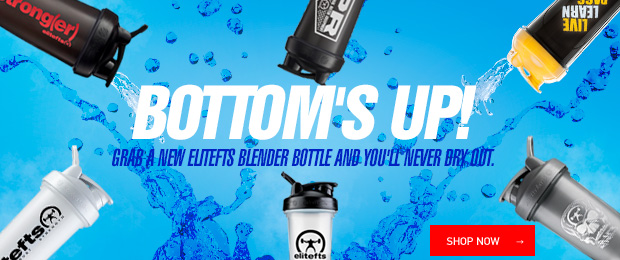
Here are some numbers: I turn 45 this December. Thirty-one years ago, I picked up my first plastic weight set at 14. I competed in 36 IFBB pro competitions over 13 years and another 12 or so as an NPC amateur. Altogether, that’s a significant amount of weight training, dieting, and time spent with a bodybuilding mindset.
Two years ago, my business partner retired, and I quickly learned that changing a 30-year-old company’s culture is a major undertaking that requires very long hours, patience, and resolve. Bodybuilding, from a competitive standpoint, fell by the wayside.
RECENT: 4 Mistakes Fallen Leaders Are Prone To
People often ask what things look like for me now in this life stage. Here’s what’s changed:
Goals
I once heard a joke which said that 20-year-olds want to be big, 30-year-olds want to be strong, and 40-year-olds just want to be healthy. Looking at these demographics, the statement is fairly accurate, although I always made health a high priority.
My goals changed over the past two years where the priority of increasing muscle mass dropped significantly. I care more about mobility, athleticism, and looking good for Christina. I’m no longer under the scrutiny of a judging panel or out to impress dudes with how much I lift in the gym.

Frankly, packing around a bunch of extra muscle is less attractive to me now, although I wouldn’t consider myself small weighing around 210 pounds at five-foot-six at sub-10-percent bodyfat. Chasing hard after muscle mass for 30 years means I’ll likely never struggle with above-average size due to muscle memory and so long as I continue to train.
However, my change in goals plays itself out in how I eat, train, and supplement.
Diet
I’m no longer in food purgatory with the pressure of living under a calorie deficit while preparing to compete or the stress of force-feeding in the off-season to grow. I eat what I want when I want it — within reason. To a large extent, I feel like I’m out of prison, set free of the restrictive diet conditions once placed upon myself while active in bodybuilding.
Decades-long habits die hard, but that’s not necessarily a bad thing. I spend most Sunday afternoons preparing meals for the week ahead that consist of vegetables, rice, and organic chicken or beef.
It’s a familiar bodybuilding activity and a useful carryover to maintaining favorable body composition. If it’s time to eat with nothing preplanned, you tend to grab whatever’s available — a recipe for poor eating habits.
I weigh myself maybe once a month versus once per day because it’s no longer relevant. Body composition matters most, so a scale or calipers aren’t the best and easiest options for furnishing criticism.
More than numbers, and just like in competitive bodybuilding, I utilize the mirror. It doesn’t lie and provides an instantaneous assessment of the efficacy of my diet and training. If I don’t like what I see, I alter food choices and rein things in.
In terms of macros, healthy fat consumption takes the center stage, followed by a moderate amount of carbs and protein. I doubt I consume more than 0.75 to 1 gram of protein per pound of body weight; however, I can’t be certain because I don’t weigh food or count calories anymore.
The following is often said in bodybuilding circles, “You can’t out-train a bad diet.” Surprise, surprise, the same holds true outside of competitive bodybuilding.
Fat people’s issues aren’t with their training program, but their diets. Apologies for my bluntness, but it’s true. Eating habits must coincide with your training goals.
I don’t train as heavy, but I still train hard to maintain the engine (muscle), which allows some extra margin in my diet to be selective with my food intake (fuel).
Training
My training changed based on my new priorities and because my body is simply beaten up. Left pec tear, bad lower back, hip issue, left knee issue, torn hamstrings, shoulder pain, etc. The thing is, I still love to train and challenge myself in the gym. It’s in my blood, but I can’t and don’t train like I did in my 20s and 30s. Here’s a breakdown of the specifics:
- Overall workout volume as in the number of working sets is reduced. I now do 8-10 sets (total) for major body parts versus 16 previously. Smaller body parts get 3-5 sets.
- I train in the 45-60 minute range, whereas previously some leg workouts lasted 2 hours.
- Training frequency dropped from 6 to 4 days/week.
- Reps per set rarely drop below 8. Gone are the days of max efforts in the 2-3 rep range.
- Exercises that leave me with more joint pain than muscle soreness are excluded altogether.
- Giant sets and sets alternating between opposing muscle groups are staples now that an elevated heart rate takes priority over the weight moved.
- I challenge myself with drop sets to extend sets rather than the sole focus of adding weight to a bar.
- I stretch more, practice hot yoga, and utilize a near infrared sauna regularly.
- I never did steady-state cardio while competing, and the same is true today; however, I do add in brief cardio challenges once per week in the form of treadmill sprints, kettlebell swings, or Prowler work.
Supplementation
I ran out of cupboard space for supplements while competing — ha! Gone are the countless number of pills I took daily. Now the backbone of my supplementation is designed to support heart, joint, liver, and hormone health.
- Heart and joints both benefit from anti-inflammatory supplementation. Curcumin/tumeric and EPA/DHA (fish oil) play the largest role in this regard.
- Milk thistle and methylfolate support liver function.
- Vitamin D, DIM, and ZMA support balanced hormone levels.
Outside of Biotest Plazma consumed intra-workout, I don’t utilize any protein shakes. In fact, as alluded to earlier I don’t worry all that much about daily protein intake. Plazma remains the most pivotal supplement supporting training stamina and recovery.
Conclusion
Bodybuilding has taught me so much about diet, nutrition, and the value of self-discipline. Competing success hinged on being borderline obsessive in the details of my diet, nutrition, and supplementation.
Scaling back provides bandwidth to enjoy life while continuing to maintain good health and a quality physique. The ability to find a sustainable approach is key. I hope this article encourages you to find that balance.











Thanks, Mark!
Bill
All the best,
Mark
Thanks,
Mark
Lorenzo
All the best,
Mark
Have you noticed if the lowered protein intake has improved your digestion at all?
Thanks,
Mark
Great article bud & very informative ,Thank u very much for sharing this .
I was wondering how do you stay at 10% body fat with your diet? Do you have "cheat meals" ever or are you pretty strict with what you eat on a day to day basis? I find myself doing more cardio then I like, but would love to less.
I don't schedule my meals enough to consider one a cheat meal. I'm so damn busy at work that I barely find time to eat during the day so I probably stay under 10% just via s calorie deficit. I do eat fairly clean Mon-Fri because I prep my meals for at work. Dinner it's whatever Christina makes and the weekend we go out...just not much fast food, but I do eat Chick-fil-A once in a while :)
I don't really do any cardio, but the pace of my workouts is pretty quick.
Hope this helps!
Mark